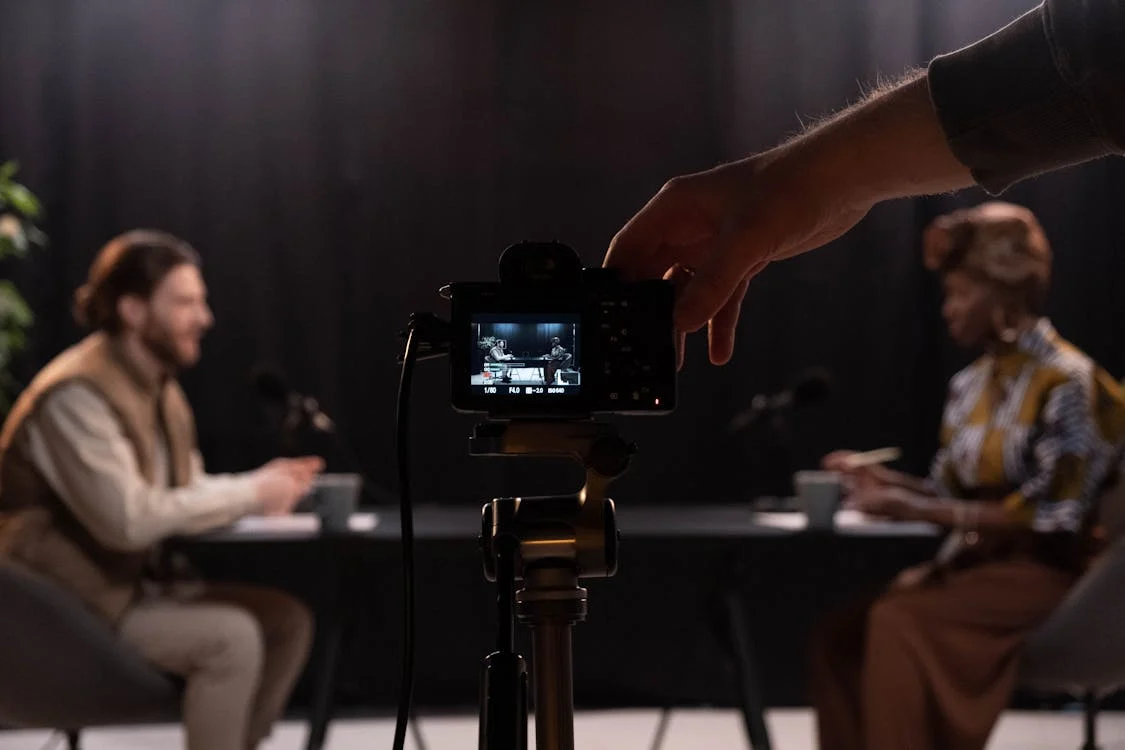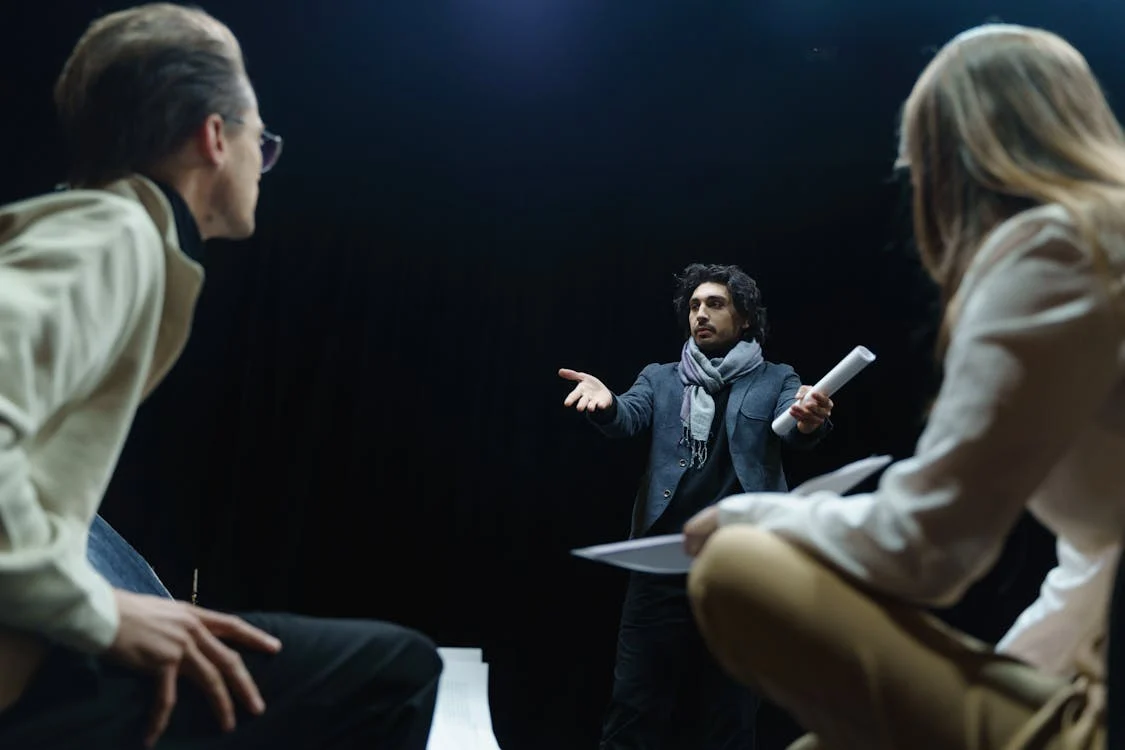How Long Before Filming Are Actors Cast?
(By Jim Webb)
 (Photo: Cottonbro Studio | Pexels)
(Photo: Cottonbro Studio | Pexels)
Casting plays a crucial role in bringing a story to life. It is one of the earliest steps in the pre-production process and can take anywhere from a few weeks to several months before filming begins. But how long before filming are actors cast? The timeline varies based on factors such as the size of the production, the complexity of the roles, the availability of actors, and the overall scheduling of the film or TV show.
1. Pre-Production Planning
Before actors are even considered for a role, there is a substantial amount of planning that takes place during the pre-production phase. Pre-production is the stage of a film or TV show where the groundwork is laid for the entire project, including script revisions, budgeting, securing locations, and assembling the core crew.
- Breaking Down the Script: Casting often begins during the pre-production phase when the script is finalized. The casting director will review the script, discuss the vision with the director, and create a casting breakdown that outlines the type of actor needed for each role. At this stage, the director and producer will determine if there are any specific requirements or constraints, such as age, ethnicity, physicality, or other unique traits.
- Casting Call: After the breakdown is completed, a casting call is created and sent out to agents, talent managers, and casting websites. This can happen as early as several months before filming begins. For major productions, casting calls may be sent worldwide, inviting actors to submit themselves for specific roles.
2. Auditions and Callbacks
 (Photo: Cottonbro | Pexels)
(Photo: Cottonbro | Pexels)
Once the casting call is out, actors submit their headshots, resumes, and demo reels to be considered for a role. If they fit the profile of the character, they will be invited to audition. This stage is crucial for casting decisions and typically takes a few weeks to a couple of months, depending on the project.
- Initial Auditions: Casting directors conduct initial auditions, which may be held in person or via self-tapes. In the case of large productions or high-profile roles, auditions may take several weeks as thousands of actors could be vying for the same role. For smaller productions, casting can be more focused, and the process may move quicker.
- Callbacks: After the first round of auditions, casting directors may invite select actors for callbacks. This is when actors are asked to perform specific scenes from the script, often in front of the director and producers. The callback process can span several days or even weeks, depending on the number of roles and how many rounds of auditions are required.
- Chemistry Reads: In some cases, actors are asked to perform chemistry reads, especially when characters have a romantic or deep emotional connection. This step helps the director see how well the actors work together and whether they have the right dynamic.
3. Final Casting Decisions
After all auditions and callbacks are completed, the casting director, along with the director and producers, will narrow down the choices and make final decisions. The timeline for this phase can vary depending on the scope of the production, but it typically takes a few weeks to finalize casting.
- Decision-Making Process: The decision to cast an actor is based on several factors: their fit for the role, their ability to portray the character convincingly, chemistry with other actors, availability, and whether they align with the director’s vision. At this point, producers may also take into account the actor’s availability for shooting schedules and the possibility of scheduling conflicts.
- Negotiations: Once the casting decision is made, the actor or their agent will enter into contract negotiations. This can involve salary discussions, schedule confirmation, and other logistical considerations. This process usually takes a few days to a week.
4. The Casting Timeline: When Are Actors Cast?
 (Photo: Mikhail Nilov | Pexels)
(Photo: Mikhail Nilov | Pexels)
So, how long before filming starts are actors cast? The timeline varies, but here are some general guidelines:
- For Independent Films: In the case of smaller independent films, the casting process may be quicker because the budget and cast size are usually smaller. Casting could begin as early as one to three months before filming. Independent projects tend to have a tighter schedule, so the audition process may be compressed, and decisions are often made quickly.
- For Major Studio Films: For large studio films or blockbuster productions, the casting process may take much longer—sometimes even up to six months or more before filming begins. These films often require a higher level of coordination with top agents, have a larger cast, and may involve negotiations with high-profile actors who have tight schedules. Casting calls for these films are typically sent out long before the filming schedule is set in stone.
- For TV Shows: The casting process for television shows can be similar to film, but it is often more compressed. For ongoing or episodic TV series, casting may happen a few months before the first episode begins filming. For limited series or one-off projects, casting can happen much earlier, sometimes six to nine months in advance. For recurring roles, actors might be cast early in the season, with others being added as the story develops.
- For Theater Productions: Theater productions tend to have shorter casting periods, usually around one to three months before rehearsals start. However, depending on the scale of the production, some actors may be cast earlier to accommodate schedule conflicts or specialized roles.
5. Factors that Impact the Casting Timeline
While the standard casting timeline follows the steps outlined above, several factors can influence when actors are cast in a movie or TV show.
- Scheduling Conflicts: One of the biggest factors in determining when an actor is cast is their availability. Actors working on other projects may have schedule conflicts that delay casting decisions. In some cases, if an actor is already committed to another role, the casting director may need to wait until their schedule opens up or seek an alternative actor.
- Location and Filming Schedule: The location of the production and the filming schedule can also impact when actors are cast. If a film is being shot in multiple locations or internationally, casting may take longer to account for actors’ travel schedules and any logistical challenges.
- Financing and Budgeting: In some cases, a project’s financing may not be fully secured until casting is complete. Producers and investors may want to see the cast in place before committing funds. This can cause delays in casting decisions, particularly in films or TV shows that require a large ensemble cast.
- Casting for Specific Roles: Some roles are harder to cast than others, particularly if the character requires very specific traits or an actor with a particular skill set. For example, casting a well-known star or a character with unique abilities may take longer because of the extensive search required. In these cases, casting may extend into the pre-filming period.
In most cases, actors are cast anywhere from a few months to six months before filming begins. The casting timeline depends largely on the type and scale of the project, the availability of actors, and the needs of the production. Major studio films and large TV series tend to have longer casting processes to accommodate complex schedules, star talent, and logistics. Meanwhile, smaller productions or independent films may cast actors on a quicker timeline.
Ultimately, the casting process is a carefully coordinated effort to bring the best talent into a project at the right time. For actors, understanding the casting timeline and being prepared for auditions early on can help them stay competitive in the fast-paced world of film and television production.



